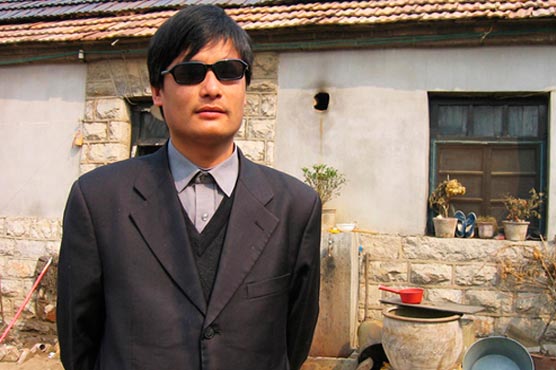Blind activist challenges China's claim

The 40-year-old legal campaigner spent two years in illegal house arrest.

The 40-year-old legal campaigner spent two years in illegal house arrest.